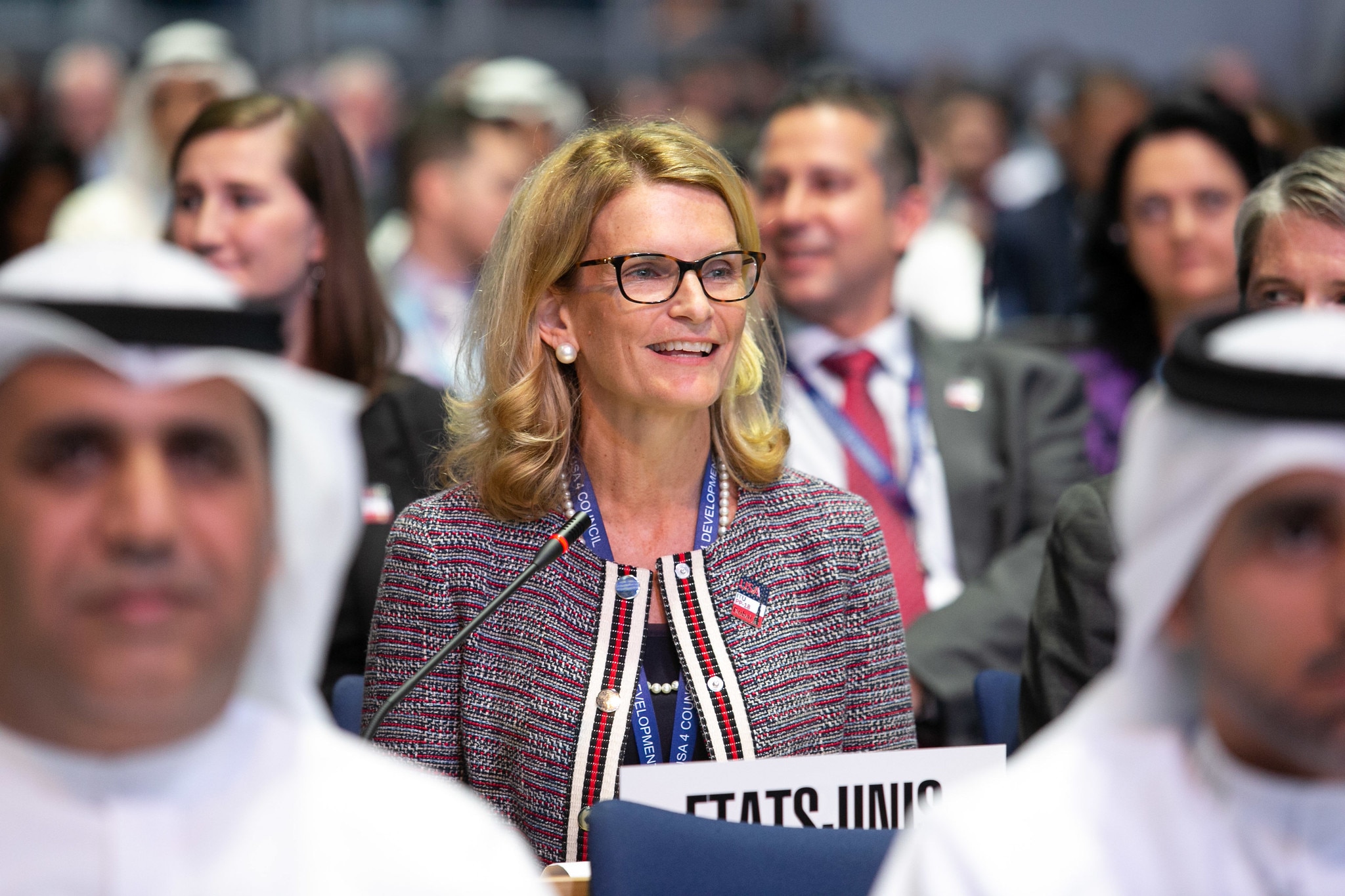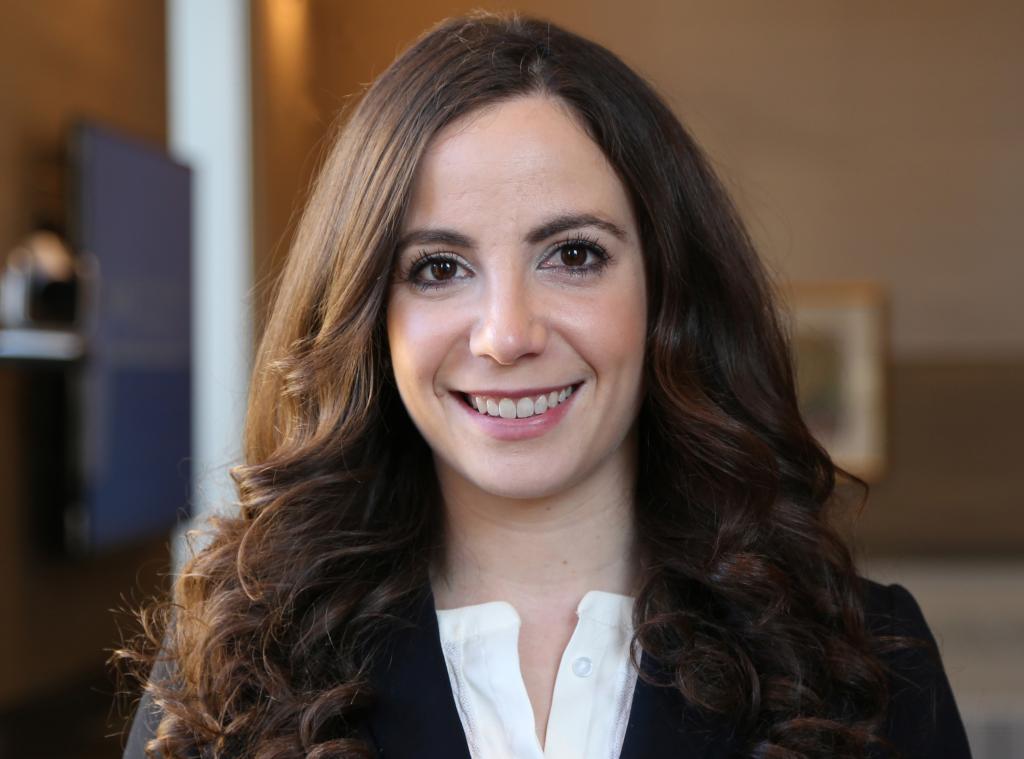Why Biden and Blinken Are Backing a Candidate for a Little-Known U.N. Internet Agency
An imminent vote for the secretary-general of the International Telecommunication Union will determine the future of the world’s oldest U.N. body—and possibly the internet itself.

Published by The Lawfare Institute
in Cooperation With

A little-known U.N. agency that develops worldwide technical standards for the internet will gain unfamiliar geopolitical attention as scientists, engineers, and government officials descend on Bucharest, Romania, this week.
On Thursday, governments will elect the International Telecommunication Union (ITU)’s next secretary-general, determining the future of the world’s oldest U.N. body—and possibly the internet itself. For the first time in years, the U.S. is running its own candidate, Doreen Bogdan-Martin, against Russia’s Rashid Ismailov, a former Russian government telecom minister and Huawei vice president. At stake is the internet’s future: whether it will continue to be an open, multistakeholder resource to the world, or become developed and controlled by nations and their leaders.
Two very deliberate design choices have characterized the internet’s development and use: openness and interoperability. A defining feature of the internet is that whether you log on in California or Kolkata, everyone logs on to the same internet—the same interconnected network of bits and bytes, allowing the free flow of messages, memes, and memos. But this interconnection is not an inevitability. As the technical dimensions of new generations of the internet get meted out on an international level, Russia and China are seeking to upend the internet’s very structure and design, putting governments—not users—in the driver’s seat.
If they succeed, that global link could disappear. The internet of tomorrow could become the “internets” of tomorrow—fragmented networks controlled by states, where sending an email from the United States to someone in Russia could be done only with explicit government approval. Over time, as technology like 6G, artificial intelligence (AI)-enabled cars, and smart manufacturing services get built atop tomorrow’s internets, we could see parallel and even divergent online universes.
China, which outnumbered the U.S. two-to-one in ITU telecommunications committee leadership positions as of 2020, has already used the ITU to advance its Digital Silk Road agenda, as the author previously wrote in these pages and the Cyberspace Solarium Commission. But the ITU’s work focuses not only on the infrastructure of the internet but also on the applications built on top of it. By promoting an “AI for Good”' initiative and the “Beijing AI Principles” through the ITU, China is selling an alternative model of AI governance that whitewashes the repressive ways it uses artificial intelligence at home. At times during the leadership of ITU Secretary-General Houlin Zhao, the ITU has explicitly hawked for the Belt and Road Initiative, such as in one ITU News article entitled “China’s One Belt, One Road can improve lives at scale through ICT investment.” How well this vision has resonated across the developing world is one question Thursday’s vote will provide a glimpse into.
It’s not just global interconnectivity at issue; implications for freedom and human rights worldwide are also potentially far-reaching. Many of the internet’s early creators and adopters viewed it as an inherently democratizing force. The Arab Spring gave some color to that vision. And while that vision has been shown to be overly optimistic, providing connectivity remains a tool in the U.S. arsenal to support democratic activity worldwide, as autocrats increasingly try to shut down the internet. According to a report published by the Office of the United Nations Commissioner for Human Rights earlier this year, 931 internet shutdowns were documented around the world in over 70 countries between 2016 and 2021. A free and open internet—like democracy—is still fundamental to the realization of human rights.
Today, the push-pull of technology companies operating in authoritarian countries like Russia and China means that local laws force them to comply with censorship demands or data requests from host governments. This power is not absolute, and companies are able to push back in some circumstances or leave the country entirely, as many have done in response to Russia’s invasion of Ukraine. For these reasons, Russia and China have used the ITU and the U.N. to push an agenda of top-down, government control of cyberspace. Their goal is to mitigate the threat a free and open internet poses to autocratic societies and make it easier for countries to surveil citizens and control access to information. If they succeed, technical proposals such as the “New IP,” already championed by Chinese leaders, could provide states the ability to control access to the internet itself. One example includes potential blacklists for dissidents who speak out—often online—against the state. Today these governments must go to great and technically challenging lengths to restrict internet access and censor content within their borders because they are working against an architecture designed for openness. But if the Russian and Chinese model gains footing in the ITU, this type of control will become much easier and more exportable—even to less technologically savvy dictators.
That’s why top U.S. leaders from President Biden to Secretary of State Antony Blinken have taken an unusual level of interest in this week’s ITU election, coming out strongly in support of Bogdan-Martin, who currently leads the ITU’s Development Bureau, and her platform of “A Trusted, Connected Digital Future.” That the United States is even running a candidate at all speaks to the urgency of the threat.
Despite its long history, so far the ITU has had a mostly tangential role in the development of the internet. For good reason. In the open internet model, development of standards and protocols essential for the internet to function has taken place in a transparent and consultative process driven by industry and academia through bottom-up standards organizations like the Internet Engineering Task Force—led by engineers, not governments. The domain name system itself is run by a nonprofit, ICANN. This setup has thus far insulated the technical operations of the internet from geopolitical tensions among states. For these philosophical reasons, the United States’ role in the ITU has historically been relatively light touch. But in recent years, Russian and Chinese efforts to design an internet in their own autocratic image have sought to bring more of that technical development into the opaque U.N. agency controlled by member governments. In 2021, Russia and China signed an agreement committing to increasing the role of states in internet governance. And in February’s much-touted Russia-China cooperation pact, both sides expressed that they were “interested in greater participation of the International Telecommunication Union in addressing these issues.” Their aim is to bring just that state control to the internet.
The United States is now pushing back directly with Bogdan-Martin’s candidacy, even if its goal is somewhat paradoxical: to ensure that the bulk of the future internet’s development happens elsewhere. As President Biden has put the competition between democracy and autocracy at the center of his administration’s foreign policy agenda, this push to secure a free and open internet against authoritarian control supports that mission. But this goes beyond U.S. foreign policy. Thursday’s vote also raises bigger-picture questions about the future of the internet at a time when many of the internet’s early promises have fallen flat—even within democracies—due to political polarization, disinformation, and a lack of regulation by governments. Because all U.N. member states will have the opportunity to vote by secret ballot on which vision of the internet they want to see for the internet’s next 30 years, the election outcome will be a first litmus test of which side is winning.





